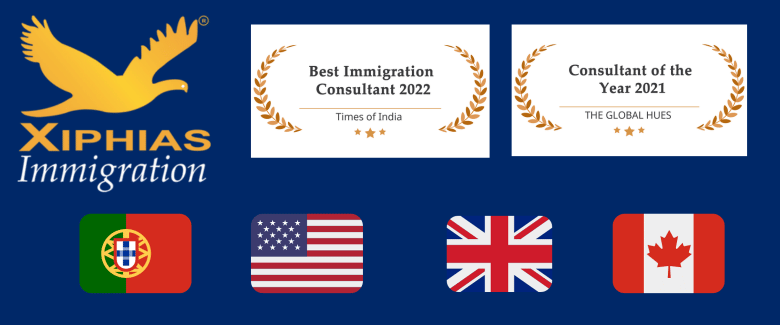Keeping Families Together: All You Need To Know
The U.S. Department of Homeland Security (DHS) has announced a new program that offers qualifying noncitizen spouses & stepchildren of U.S. citizens, permanent residency. The reason behind the introduction of this new program is to ensure the stability and unity of families and strengthen their relationships with other countries. Now, let’s learn about this program in detail.
Overview
This new program has been rightfully named “Keeping Families Togetherâ€. Although Family unity is the foundational objective of the U.S. immigration system, hindrances, such as underfunding, visa processing backlogs, and the impact of the COVID-19 pandemic, are inevitable. This has severely affected the ability of U.S. citizens and their undocumented family members to access immigration benefits promoting family unity. This has been so consistent that, there are approximately 765,000 undocumented noncitizens in the U.S. who are married to U.S. citizens according to the DHS (source).
Hence, to address this humongous issue, the Government has taken the initiative to provide legal pathways for such individuals to obtain permanent residency. The good news is that it would be available for nearly 500,000 eligible noncitizen spouses who lack legal immigration status. This new program will allow these spouses to stay in the United States while applying for status adjustment and preventing long-term separation.
The Issue at Hand: Barriers to Family Unity
Long-Standing Challenges in the U.S. Immigration System
As mentioned above, the U.S. immigration system has been plagued with inefficiencies, backlogs, and restrictive regulations that have made it difficult for many undocumented immigrants to regularize their status. Many of these individuals have lived in the country for decades, raising families and contributing to their communities. However, a significant barrier has prevented them from adjusting their status: the requirement that they must have been “inspected and admitted or paroled†into the country.
The Impact of the “Inspected and Admitted†Requirement
Under current U.S. immigration law, noncitizens who wish to apply for Lawful Permanent Resident (LPR) status while remaining in the United States must meet specific criteria, including having been “inspected and admitted or paroled†into the country. Unfortunately, more than two-thirds of undocumented noncitizens married to U.S. citizens do not meet this requirement. As a result, they must leave the United States and apply for an immigrant visa from a U.S. embassy or consulate abroad, a process fraught with uncertainty, lengthy delays, and the risk of long-term separation from their families.
The New Initiative: Parole in Place for Undocumented Spouses
In June 2024, the President of the USA declared this program to preserve family unity and national relationships. The initiative leverages the discretionary parole authority under the Immigration and Nationality Act (INA) to allow eligible noncitizen spouses to apply for parole in place, enabling them to remain in the United States while applying for adjustment of status to that of a lawful permanent resident.
This program aims to address the challenges posed by the “inspected and admitted†requirement by offering a solution for undocumented spouses who have been living in the U.S. for at least ten years. If granted parole in place, these individuals will be considered as having been “inspected and admitted,†thereby making them eligible to apply for LPR status without leaving the country.
Eligibility Criteria Under Parole For Place
To qualify for this new program, noncitizen spouses must meet the following criteria:
- Marital Status: Applicants must be married to a U.S. citizen, with a legally valid marriage as of June 17, 2024.
- Continuous Presence: Applicants must have been physically present in the U.S. continuously for at least ten years, dating back to June 17, 2014.
- Criminal Background: Applicants must have no disqualifying criminal history and must not pose a threat to public safety, or national and border security.
- Discretionary Merit: Parole in place is granted on a case-by-case basis and will depend on whether the applicant merits parole as a matter of discretion.
And for noncitizen stepchildren of U.S. citizens:
- Age & Marital status: Must be unmarried & under the age of 21 (as of June 2024)
- Continuous Presence: Be physically & continuously present in the country from at least June 2024, through the filing date.
- Noncitizen parent: One of their parents MUST be a non-US citizen who married their US spouse before the stepchild’s 18th birthday.
- Criminal Record: Must have a clean criminal history and not pose a threat to public safety, or national and border security.
Application Process and Path to Permanent Residency
Applicants who meet the eligibility criteria can request parole in place through a formal application process. Once granted parole in place, these noncitizens can file for status adjustment using Form I-485 (Application to Register Permanent Residence or Adjust Status). Importantly, the parole-in-place status fulfills the “inspected and admitted or paroled†requirement, allowing the applicant to pursue LPR status while staying in the United States.
It is essential to note that while parole in place addresses a significant hurdle in the adjustment of status process, applicants must still meet all other statutory and regulatory requirements, including having an approved immigrant visa petition based on a bona fide relationship to a U.S. citizen.
The Broader Impact of the Program
Promoting Family Unity and Stability
The primary goal of this initiative is to promote family unity by allowing U.S. citizens and their undocumented spouses to remain together while navigating the immigration process. The program aims to prevent the unnecessary disruptions and emotional strain caused by forced separation, which can last for months or even years. By allowing families to stay together, this program aligns with the longstanding principle of family unity embedded in U.S. immigration law.
Economic and Social Benefits
In addition to promoting family stability, this program is expected to have positive economic implications. Paroled noncitizens will be eligible to work legally in the United States, allowing them to contribute more fully to the economy. This could result in increased household incomes, greater financial security, and improved economic outcomes for millions of U.S. citizens children, and family members.
Moreover, the program could help reduce the strain on U.S. immigration agencies by decreasing the number of consular processing cases and minimizing the need for removal proceedings. By streamlining the adjustment of the status process for eligible noncitizens, resources can be redirected toward more critical areas of immigration enforcement and adjudication.
Diplomatic and Security Considerations
The initiative also aligns with broader U.S. foreign policy and national security objectives. By providing a clear and accessible pathway to legal status, the program encourages undocumented immigrants to come forward and undergo background and security checks. This enhances national security by ensuring that individuals with no criminal history or security concerns can regularize their status. Furthermore, by managing migration more effectively, the U.S. strengthens its diplomatic relations with partner countries and fosters regional stability.
Conclusion
The administration’s “Keeping Families Together†program represents a significant step toward addressing the long-standing issue of family unity in the U.S. immigration system. By offering parole in place to eligible undocumented spouses, the initiative will preserve family bonds, help develop America economically, reduce strain on government resources, and further national & border security.
As the program rolls out, it will be critical for U.S. citizens and their undocumented spouses to understand the eligibility criteria and take advantage of the opportunity to secure permanent residency and, ultimately, a more stable and prosperous future together.
For more information on this program and to explore the available resources, contact XIPHIAS Immigration today. We are an immigration law firm and will answer all your immigration questions, including family-based immigration cases. As the landscape of U.S. immigration continues to evolve, staying informed and proactive remains key for those seeking to navigate the system successfully.


